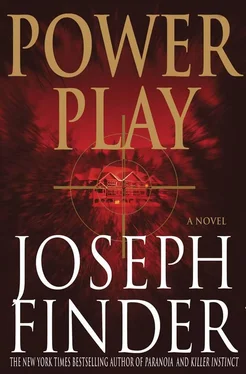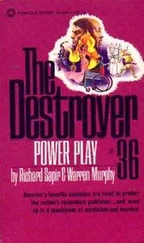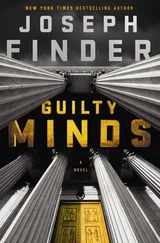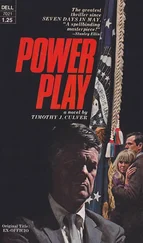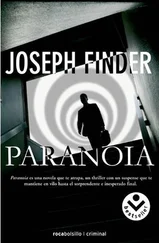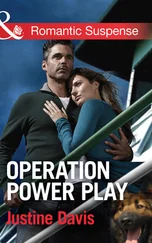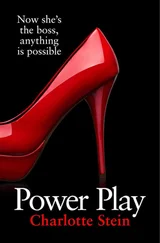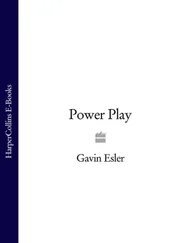Or maybe it was because I knew no one else would. And if I didn't warn the two men not to remember the Hammond account numbers, my plan was doomed to fail.
Not that it wasn't doomed to fail already. Too many things could go wrong with it. Russell-too canny, too suspicious-might not fall for the phone call thing. He might simply scare the information out of someone at gunpoint: your company's money or your life. I knew what I'd choose.
He might not pick Slattery to do the transfer, especially if he knew that there were five executives-Grogan, Danziger, Bodine, Slattery, and Latimer-who also had the power. Whoever he did pick could easily screw it up, not figure out a way to communicate duress without Russell picking up on it. And whoever was at the other end of the phone might not get it.
And what if he already knew the account numbers?
So the odds of it working, the more I thought about it, were pretty damned slim.
Here I was, risking my life for a gambit that was likely to fail anyway. A gambit that, the more I mulled it over, was already starting to shred like wet tissue paper.
But to do nothing, I was certain, was to ensure that some of us, maybe even all of us, got killed.
Russell was wrong: You don't always have a choice.
Though the two men were only maybe thirty feet or so away, on the other side of the enormous fireplace, it might as well have been a mile.
I waited until Travis had completed a circuit, did his military-style about-face and passed us. And then I tried to get up.
But rising from the floor with your hands tied together, palms in, wasn't easy. I had to swing my knees over to one side, then lean my torso all the way forward. Extend my hands as if I were salaaming. Then I pressed the back of one of my hands against the floor and pushed myself up and to my feet.
It took almost five seconds. Which was way too long.
By the time I was standing, Travis had almost reached the end of the room. There was no time for me to run around the fireplace to the next alcove before he turned around.
Now what? I asked myself. Do I sit back down, wait until Travis's next circuit?
Then a screen door slammed. Not the front door: Verne, back from his cigarette break.
I no longer had a choice. I had to move.
I took long, loping strides, as fast as I could, yet at the same time treading as lightly as possible. A matter of a couple of seconds, but it felt like forever.
All the while my eyes were riveted on Travis.
He came to the end of his circuit and turned just as I sank to the floor next to the manager's son, Ryan. He-and everyone else around him-looked in astonishment. I gave a quick headshake to tell them to be quiet.
Travis glanced over but maintained his steady pace. He hadn't noticed.
Verne entered from the back hallway, walking quickly, sniffing, swinging his arms jerkily, humming some tune, amped. When he was out of range, Ryan Fecher said, "What the hell-"
I put a finger to my lips, slid across the floor.
Alan Grogan and John Danziger were seated next to each other.
"Are you out of your freakin' mind?" Danziger said. I noticed the large bald spot under his fine blond hair. His light blue alligator shirt looked as if it had been ironed. He was one of those preppy guys whose clothes always fit perfectly, who had a certain natural, aristocratic ease and economy of motion.
"Yeah," I said. "I must be."
I quickly explained. As I did, he and Grogan exchanged looks-of disbelief, then skepticism and apprehension.
"I don't have the account numbers with me, either," Danziger said. "Why would I?"
"Well, I do," said Grogan. "In my head."
"Figures," Danziger said with feigned disgust. He turned to me, and said, with obvious pride, "Grogan's a USA Math Olympiad gold medalist. Even though he'll never admit it."
Grogan glared at Danziger. "Thanks, pal." The moonlight caught the network of fine lines around his hazel eyes.
"Hey," Danziger said, "if that's the only dirty little secret about you that comes out here, you're lucky."
"Very funny," Grogan said, sounding almost peeved.
"Russell doesn't know you have those numbers memorized," I said. "So you don't say a word. We clear?"
Both men nodded.
"If anyone tells him different," Danziger said, "we're in deep shit. The guy's already made it clear he doesn't want to be lied to. And what the consequences will be if anyone does."
"Right," I said. "But if we all agree, then it's the truth. Right?"
Grogan and Danziger looked less than convinced.
"Having a gun pointed at you does funny things to people," Grogan said. "We don't know what the others might do if Russell threatens them."
"That's a risk we're going to have to take," I said.
We sat in silence for half a minute or so while Travis passed by. Then Danziger whispered, "Listen, there may be something else."
I looked at him.
"When you mentioned a duress code-it jogged my memory. You know, I set something up with the bank a while ago, but we never had an opportunity to use it. Never came up. It's sort of a silent alarm-an electronic duress code."
"Electronic? How does that work?"
"It's just a variant authentication code. If you enter a nine before and after the PIN, it trips a silent alarm. Tells the bank officer that the transaction is fraudulent, probably coerced."
"Then what happens?"
"Well, first thing, they freeze the account. Then a whole emergency sequence gets triggered-calls are made to a list of people. My office, the CEO's office, the director of corporate security. Telling them something's wrong: Someone's probably forcing a company officer to access the bank accounts."
"But are they going to know where it's happening?"
"Sure. Our own corporate security people can dig up the IP address we logged in from-where the duress code originated. That'll tell them exactly where we are."
I nodded. "So corporate security or whoever can alert the Canadian authorities. Yes. But would Russell know we tripped an alarm?"
"Not at all. He'll see a false positive response. He'll think the transaction was successful."
"He'll know it wasn't as soon as he checks his account balance."
"True. No way around that."
"So when he sees that the wire transfer didn't go through," I said, "we'll just tell him it must have gotten intercepted along the way. Maybe at some higher level at the bank. Or by U.S. banking authorities. Some line of bullshit-he's not going to know the truth. But by then, the word will be out that we're in trouble."
"Exactly."
"Could work," I said.
"Maybe."
"Right now," I said, "it's all we have."
The manager's son, Ryan Fecher, made a psst sound and slid over toward me.
"I recognize a couple of those guys," he said, so softly I could barely hear him.
"From where?"
"From here."
"When? Which ones?"
"Last week, I think it was. We didn't have any corporate groups, just separate parties. That guy-Russell? The leader? And that guy who keeps bring people in and out?"
"Travis."
"I think they're brothers," he said.
"I think you're right. What'd they do here?"
"They kept to themselves, didn't socialize with anyone. Didn't want to do any of the normal stuff like fishing. They mostly hung out here, took a lot of pictures."
"Of what?"
"The inside and outside of the lodge, the grounds, the dock, all that. They said they were into architecture and they'd heard about this place. Wanted to know how many staffers we had and where they lived. If we had Internet and if it was wireless and if it was in all the guest rooms or not. Whether we had landline phones or satellite phones, and whether guests could use the sat phone. How we got supplies like food and stuff and how often we got deliveries and mail. And they wanted a tour of the lodge."
Читать дальше
